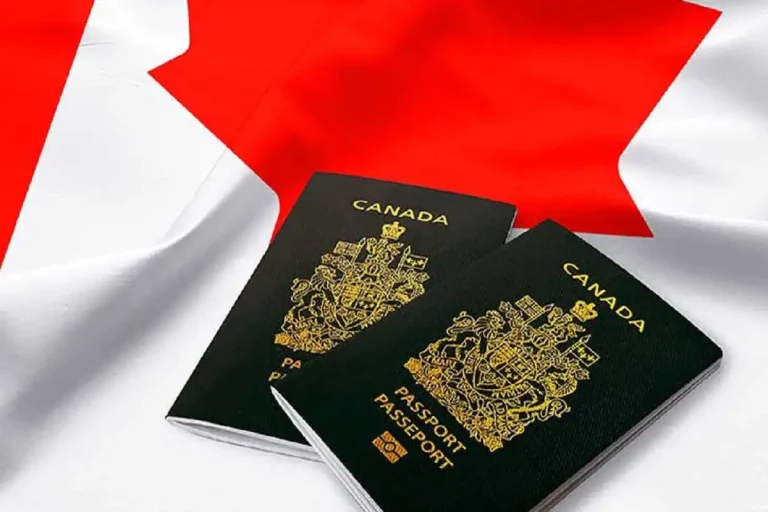Are you a parent looking to travel to the United States with your children? Navigating the complex world of US visa requirements can be daunting, but it’s essential to ensure a smooth and stress-free journey. In this blog post, we’ll discuss why understanding US visa requirements for children is crucial and provide some helpful tips to make the process easier. Don’t let confusion stand in the way of your family’s travel plans – read on to learn more! US VISA FOR CHILDREN
Introduction: Why Understanding US Visa Requirements for Children is Important
The United States of America is a popular destination for families, whether it be for vacation, business, or education. As such, many parents may find themselves in the process of obtaining visas for their children to accompany them on their trip. However, navigating through the complex world of US visa requirements can be overwhelming and confusing, especially when it comes to children.
In this section, we will discuss the importance of understanding US visa requirements for children and why it should not be taken lightly. From legal implications to potential travel delays or even rejection of entry into the country, there are significant consequences if these requirements are not met.
Legal Implications
First and foremost, understanding US visa requirements for children is crucial because failure to comply with them can result in legal implications. The Department of Homeland Security has strict regulations in place regarding immigration and border control. Any violation or misunderstanding of these regulations can lead to serious consequences such as fines, deportation, or even permanent ban from entering the country. US Business Visa Requirements
Travel Delays
Another reason why understanding US visa requirements is important is that any incorrect information or missing documents can lead to travel delays. This can cause unnecessary stress and inconvenience for both parents and children. In some cases, these delays may result in missed flights or connecting flights which could further affect travel plans and incur additional expenses.
Rejection of Entry into the Country
Perhaps one of the most severe consequences that could arise from not understanding US visa requirements for children is being denied entry into the country upon arrival. This would undoubtedly disrupt any planned travels and potentially ruin a long-awaited family trip.
Additionally, being rejected at the border could also have lasting effects on future travel plans as well as create complications with current visas/citizenship status.
Conclusion
Understanding US visa requirements for children is essential because it ensures compliance with immigration laws while avoiding potential legal implications and travel disruptions. It is crucial for parents to thoroughly research and understand the specific requirements for their child’s visa category and ensure all necessary documents are in order before embarking on their trip.
In the following sections, we will delve deeper into the specific visa requirements for children based on different categories, such as tourist visas, student visas, or immigrant visas. We will also provide helpful tips and resources to assist in the application process. By having a thorough understanding of these requirements, parents can confidently plan their family trips to the US without any complications or delays.
Types of visas available for children: tourist, student, immigrant, etc.
When it comes to traveling with children, one of the most important factors to consider is their visa requirements. Without the proper visa, children may not be allowed entry into the United States, which can lead to major travel disruptions and even disappointment for families. It is crucial for parents to understand the different types of visas available for children in order to ensure a smooth and stress-free travel experience.
1. Tourist Visa:
The most common type of visa for children is a tourist visa, also known as a B-2 visa. This allows children under the age of 18 to enter the US for temporary stays, such as visiting relatives or going on vacation. It is important to note that this type of visa does not allow children to attend school or work while in the US.
2. Student Visa:
For children who wish to study in the US, a student visa (F-1 or M-1) is required. This type of visa allows minors under 18 years old to attend primary or secondary school while in the US. However, if they are attending college or university, they will need an F-1 student visa regardless of their age.
3. Immigrant Visa:
An immigrant visa (CR-2) is required for any child under 21 years old who wishes to become a permanent resident in the United States through adoption by a US citizen parent(s). This process involves obtaining legal custody from their country of origin and then applying for an immigrant petition with USCIS.
4. Exchange Visitor Visa:
Children who participate in exchange programs through organizations like AFS Intercultural Programs or Rotary Youth Exchange are eligible for J-1 exchange visitor visas. These visas allow them to stay with host families and attend school while participating in cultural exchange programs.
5. Special Visas:
There are also special categories of visas available for certain circumstances relating to child adoption and protection under US law such as IR-4 (for children in the process of being adopted) and IR-3 (for children who have already been adopted).
It is important to note that the process and requirements for each type of visa may vary, so it is crucial for parents to carefully research and understand the specific requirements and procedures for their child’s visa application. Additionally, it is recommended to start the application process well in advance as it can take several months for a visa to be approved.
Understanding the different types of visas available for children is crucial when planning a trip or relocation to the United States. It is always best to thoroughly research and consult with an immigration attorney if needed in order to ensure a successful application process. With proper preparation and knowledge, parents can avoid potential travel disruptions and make their child’s experience in the US a memorable one.






















+ There are no comments
Add yours